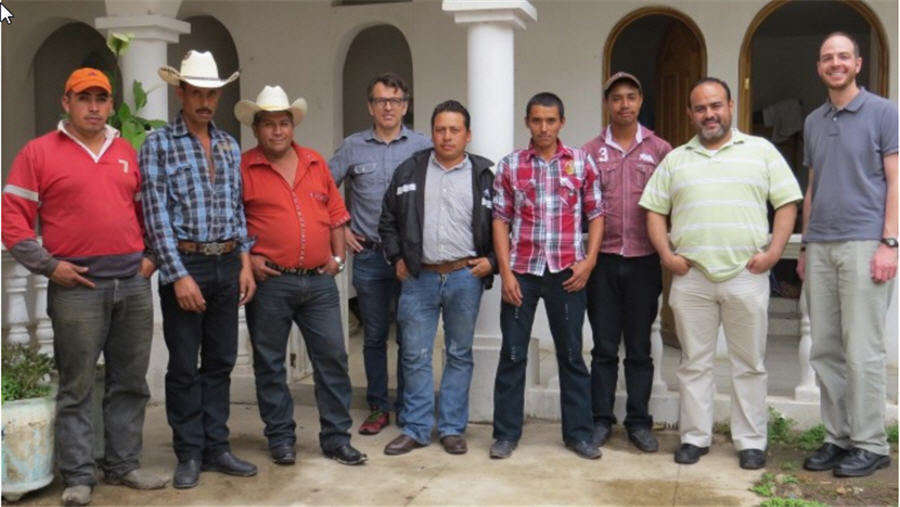Guatemalans’ lawsuit against Tahoe Resources to go to trial

The British Columbia Court of Appeal has rejected efforts by Tahoe Resources Inc. to dismiss a lawsuit brought by seven Guatemalan men for injuries they suffered during the violent suppression of a peaceful protest at Tahoe’s mine in Guatemala.
The ruling represents the first time that a Canadian appellate court has permitted a lawsuit to advance against a Canadian company for alleged human rights violations committed abroad.
In the judgment, the Court of Appeal overturned a lower court decision that had found Guatemala was the more appropriate venue for the case. The Court of Appeal ruled that several factors, including evidence of systemic corruption in the Guatemalan judiciary, pointed away from Guatemala as a preferable forum, thereby keeping the case in British Columbia. The court concluded that “there is some measurable risk that the appellants will encounter difficulty in receiving a fair trial against a powerful international company whose mining interests in Guatemala align with the political interests of the Guatemalan state.”
The plaintiffs are supported in Canada by a legal team comprised of Vancouver law firm Camp Fiorante Matthews Mogerman (CFM) and the Canadian Centre for International Justice (CCIJ). In Guatemala, they are represented by lawyers at the Guatemalan Centre for Legal, Environmental and Social Action (CALAS).
Until recently, the legal doctrine of forum non conveniens had been an obstacle for foreign victims of corporate abuse seeking redress in Canadian courts. The doctrine gives courts discretion to dismiss a case in favour of a foreign jurisdiction in certain circumstances and had previously shielded Canadian companies, particularly in the extractive sector, from judicial scrutiny of their overseas operations.
Last October, Eritrean plaintiffs overcame a forum non conveniens challenge in their slave labour lawsuit against Vancouver-based Nevsun Resources Ltd. That lower court ruling is now on appeal and will also be heard by the BC Court of Appeal, in September 2017.
With the reinstatement of the lawsuit against Tahoe, there are now multiple cases advancing in Canadian jurisdictions against companies accused of responsibility for severe human rights abuses. Three Ontario lawsuits alleging that Hudbay Minerals is liable for killing and gang rapes in Guatemala are also moving toward trial.
“Today’s landmark ruling shows that Canadian courts are open to victims of abuses linked to Canadian companies operating abroad,” said Matt Eisenbrandt, Legal Director of CCIJ. “Despite a lack of regulation by the Canadian government, we hope these recent developments in the courts signal an end to corporate impunity for human rights violations,” Eisenbrandt said.
In their submissions to the Court of Appeal, the plaintiffs had emphasized that their claims against Tahoe were centered in Canada where Tahoe is incorporated and where most of Tahoe’s Board of Directors, which the plaintiffs say has ultimate oversight for security and community relations in Guatemala, resided at the time of the shooting. The plaintiffs also submitted extensive evidence showing systemic problems with Guatemala’s judicial system.
“We are very satisfied that the court understood the remote chance of the plaintiffs receiving a fair trial in Guatemala due to a lack of judicial independence and widespread impunity,” said Rafael Maldonado, Legal Director of CALAS. “This is especially relevant given recent corruption scandals at all levels of the Guatemalan government, and particularly at the Supreme Court of Justice.”
In the Vancouver lawsuit, Tahoe faces claims of battery and negligence for the actions of its Guatemala Security Manager, Alberto Rotondo, and other security personnel in the April 2013 shooting, something the plaintiffs allege was a planned show of force to intimidate the local community and eliminate opposition to the Escobal mine.
Rotondo was criminally charged in Guatemala, based in part on wiretap evidence from his phone. However, less than two months before he was scheduled to go on trial, Rotondo escaped from house arrest and fled to Peru, his home country. The Guatemalan case, in which some of the victims were participating as civil parties, was suspended.
Rotondo’s escape from Guatemala was an important factor in today’s judgment from the BC Court of Appeal.
“The court agreed with our submissions that there are no longer any active legal proceedings in Guatemala, which pointed to British Columbia as the appropriate forum for the case” said Joe Fiorante, Q.C., a partner with CFM. “We are pleased with the result and look forward to litigating this case in British Columbia.”
Responding to the decision, plaintiff Luis Fernando García Monroy, who suffered multiple gunshot wounds, including one to his face, said, “We are very happy to have the opportunity to pursue justice in Canada, something we cannot do successfully in a Guatemalan court. In the face of corruption and repression by Guatemala’s government, including a campaign to bring false criminal charges against peaceful protesters in our community, there is no guarantee of accountability here.”
{{ commodity.name }}
{{ post.title }}
{{ post.date }}




Comments